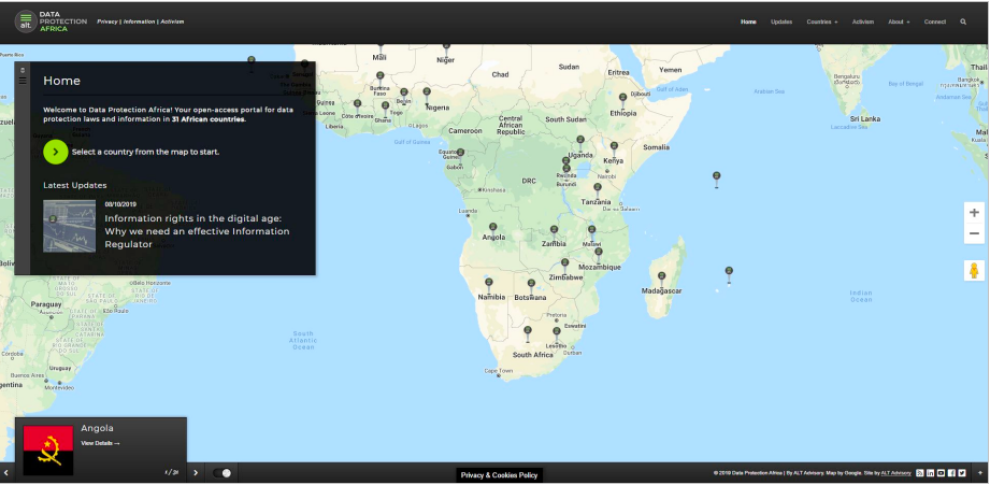
Data Protection Africa (DPA) is an online open-access portal that provides information on data protection laws and access to data protection authorities in 32 African countries. Phase 2 updates to DPA are now available.
As of 31 March 2020, the portal is now available in 18 languages, all country pages have been updated, and it contains new country pages for the Togolese Republic and Kenya. In addition, the homepage map now uses a traffic light system to indicate: countries where a data protection law is enforced (green); countries which have a data protection law but it is not yet enforced (yellow); and countries where a data protection law is yet to be enacted but other privacy provisions are available in existing laws (red).
The Phase 2 updates further provide an overview of data protection trends in Africa, a list of relevant case law on information rights, a list of digital rights organisations working in Africa’s data protection space, and contact information for operationalised data protection authorities.
In the face of the rapid digital transformation sweeping through Africa, it remains vitally important that changes taking place in the data protection landscape are documented and easily accessible to enable activism and the exercise of privacy rights. This is particularly so in the midst of the COVID-19 pandemic and the increased use of emergency powers by states. To keep people informed of developments, the Phase 2 updates seek to ensure enhanced usability and access to knowledge for users of DPA, and to promote and galvanise data privacy activism.
Phase 3, which is planned to launch in September 2020, will see increased usability and cross-referencing functionality.
#YourDataIsYours
You can access the portal here.
DPA is a special project that has been developed by ALT Advisory with the support of a grant from the Strategic Advocacy Fund, as part of the project “Securing human rights online in Africa through a strong and active ‘African Declaration on Internet Rights and Freedoms’ network”. This article was originally published on the African Declaration on Internet Rights and Freedoms website.